- Home
- Shannon Hale
Austenland: A Novel Page 9
Austenland: A Novel Read online
Page 9
Pembrook Cottage was built of the same yellow bricks as the main house, though much smaller with only a ground floor and four facing windows. The garden around it was idyllic, low-hanging apple trees bearing a few late-season offerings, a few clumps of blue asters still poking through the tangles of grass. It was the kind of house you dreamed about renting for a summer, a place you’d run to, sit down in a comfortable chair, and let out a sigh of relief.
Then Jane spied Miss Heartwright through the window, doing embroidery in the cottage’s only sitting room while her mother, Mrs. Heartwright, snored in a chair. The old lady had also been asleep the first time Jane had called on the cottage with the other Pembrook ladies. Miss Heartwright looked up from her embroidery at the opposite wall, and Jane caught a glimpse of her face—the look in her eyes warned of panicked boredom. Jane nearly ran away before pity for the poor woman drove her to knock at the door.
Besides, Jane thought, I’m in the game for real now, and this is what a Regency woman would do. Even elitist Emma made house calls.
A red-cheeked maid led her into the sitting room to a chair by the fire and pleasantries were exchanged.
“Oh, thank you for calling, Miss Erstwhile!” Miss Heartwright said many times. And somehow that wasn’t irritating. The lovely lady was positively glowing.
“Why do you . . . ?” Jane had been about to ask why Miss Heartwright put up with this drab little existence. Surely with the money she was paying and the status of Ideal Client, she could be a guest in the main house—but Jane knew such questions were forbidden. Likely Mrs. Heartwright was only faking the snore and listened keenly for any illegal tidbits to pass on to the proprietress. But, man, that snore sure sounded real. Then again, maybe she was some poor, senile old lady from a nearby village who had no idea what was going on. It would be like Mrs. Wattlesbrook to fool the lady’s family into paying for her stay in an authentic nineteenth-century nursing home.
Jane cleared her throat. “That is to say, how do you fare today, Miss Heartwright?”
They chitchatted—weather (breezy and damp), the gentlemen’s hunting (pheasants), news (Sir John at the apothecary’s, the topic of gravest concern). Jane thought she understood why Austen often left these conversations up to the narrator and spared the reader the grotesquerie of having to follow it word by word.
After a lapse, Jane hemmed for something else to say.
“So, would you like to come up to the main house? We could wait for the gentlemen’s return and inquire after the state of Sir John at the earliest possible—”
“Yes!” Miss Heartwright hopped up.
Jane was pretty sure Miss Heartwright’s enthusiasm lay not in concern for the drunken husband but in the chance to hobnob with Mr. Nobley.
Ick, thought Jane, as she realized she was turning out to be poor Fanny Price in Mansfield Park—the plain girl, the lower-class girl, the one with no one to take her arm. Just now she wouldn’t turn down that naughty nugget, Henry Crawford.
They strolled up to the main house, gravel crunching beneath their boots, wind teasing their bonnet strings.
“I’m sure my aunt will ask you to stay to dinner,” Jane said.
“I hope so. Mama will be fine alone with Hillary, and I enjoy the company of everyone at Pembrook Park so well. Particularly you, Miss Jane.” She took her arm. “I hope we are good friends.”
If Miss Heartwright were any less perfect, that would have sounded laughable. But since she was flawless, it was merely exasperating. In an endearing way, of course.
A carriage coming up the drive spared Jane a reply. “That must be Aunt Saffronia and Miss Charming. Make haste,” Jane added, just because she’d always wanted to say that.
Amazing how the sight of any moving object was exciting when one lived in such a stifled existence. They hurried (in a reserved, proper manner) to greet the carriage as it stopped before the house, then they were stopped in turn by the sight of a stranger emerging from the door of the carriage.
Miss Heartwright dropped Jane’s arm and took a step back. Apparently, he wasn’t a stranger to her.
The man was six-foot-two or taller, broad, deliciously manly, and dark-haired. He had a pleasant farm boy appeal to him, though he also seemed at ease in his gold-trimmed blue uniform. What a perfect way to start her true Austenland immersion! Jane hoped that he was single—that the character he played was single— whatever.
He stood there, waiting, looking at the horizon. If Miss Heartwright knew him, society rules said he couldn’t speak to her unless she acknowledged him first, and then it would be up to her to introduce him to Jane.
Miss Heartwright was examining the gravel.
Jane nudged her. “Are you two acquaintances?”
“Oh, yes, forgive me. Miss Erstwhile, may I present Mr. George East? Mr. East, this is Miss Jane Erstwhile, niece to Sir and Lady Templeton.”
Mr. East bowed. He did it very well.
“How do you do, Miss Erstwhile. I am Captain East.”
“Captain?” Miss Heartwright’s voice squeaked.
Their eyes met, then they both looked away. My, it was awkward.
“Oh,” Jane said, remembering how Aunt Saffronia had spoken of a jilted man in Miss Heartwright’s past. And here he was, and captained now, apparently. “Oh, I mean, I shouldn’t keep you standing in the drive after your journey. My aunt is away, but please come in and sit with us.”
Was that right? Could two unmarried ladies be alone with a single man? Jane couldn’t remember for sure, but neither protested, so they sat in the sitting room, since that’s what it was for. Jane asked a maid to bring in tea (and felt pretty cool being the lady of the house for the moment) and very soon she and Captain East were having a lively conversation while Miss Heartwright, unusually quiet, sat still and straight in a chair.
“So there we were,” said the captain, “one lone British ship surrounded by four French war crafts, no help in sight. The captain dead on the deck, the crew terrified. ‘Surrender!’ came the shout in that grating French accent. ‘Never!’ said I. I will admit to you, Miss Erstwhile, I was very much tempted, but I had to hearten my men. ‘Never!’ said I.”
“But why wouldn’t you?” asked Jane, trying her hand at being the eager woman hearing of the wide world from an adventuresome man. “There could be no dishonor in that, with the captain dead and your men so outnumbered.”
Captain East paused, looked at his hands, the remembrance of fake battles struggling beautifully across his actor’s brow. “I had watched my courageous captain in a similar circumstance. He had said, ‘When my British heart tells me what I must do, I do not fear to follow it through.’”
“Excuse me.” Miss Heartwright stood, a book tumbling from her lap. “I must go see how Mama is doing.” And she left in a hurry.
Captain East stood as well, as the Rules were pretty clear that he and Jane should not be together unchaperoned.
“I’ll call Matilda to show you to your room, Captain.”
“Thank you.” He smiled, taking in her face. “It is, Miss Erstwhile, a pleasure to make your acquaintance.”
When Matilda led him away, Jane announced to the empty room, “If you’re listening, Big Brother, I refuse to be Fanny Price.”
Guy between boyfriends #6 and #7
Paul Diaz, TWENTY-SOMETHING
He was in her watercolor class, so cute and the sweet kind of shy. They obviously clicked, the attraction thrilling between them, inspiring her to relish the infatuation freshman-style and write his name in her notebook in curvy, flowery script. She gave him openings but guessed he was too timid to ask her out. The day after finals, she ran into him at the deli on campus and thought she had nothing to lose.
“My work is having this fancy dinner party next weekend, the food’s supposed to be great. Would you like to go with me?”
“Oh, uh, maybe, I’ll have to check,” he said. Then, “What was your name again?”
There’s always something to lose.
; day 8, continued
THAT NIGHT, THE PRECEDENCE WALK from drawing room to dining was in upheaval.
“Let me see,” Aunt Saffronia said, catching herself before she chewed on a fingernail. “Mr. Nobley, would you be so kind as to take my arm? Colonel Andrews, would you escort Miss Charming? And Captain East (so happy to hear of your promotion, my dear! And much deserved, I am certain), if you will accompany Miss Heartwright, I believe you two know each other. Jane dear, you are certain you do not mind coming along alone? I can dine in my boudoir, if you prefer? No? Sir John extends his apologies for not returning to the Park, but he plans to stay in town to be near the apothecary until at least two weeks hence, poor man, so I am afraid you may not see him again before departing. Well, now that is settled, shall we dine?”
All through the soup, game bird, fish, fruit, and walnut courses, and later in the drawing room, Jane flirted madly (in a guarded, Regency sort of way) with Colonel Andrews, who was invigorated by the attention. It quickly became clear that Miss Heartwright was uninterested in her former acquaintance, so Jane added Captain East to her list of men-to-bat-eyelashes-at. Mr. Nobley was off-limits now, she supposed. He certainly seemed to be Miss Heartwright’s darling. But after Miss Charming’s visit to Mrs. Wattlesbrook’s customer-complaint desk, she was sure to get priority over the man of her choice. Perhaps the two ladies would fight over him. Pembrook Park was pining for a hearty ladies’ mud wrestle.
Jane, the captain, and the colonel begged out of cards, sat by the window, and made fun of Mr. Nobley. She glanced once at the garden, imagined Martin seeing her now, and felt popular and pretty—Emma Woodhouse from curls to slippers. It certainly helped that all the men were so magnificent. Unreal, actually. Austenland was feeling cozier.
“Do you think he hears us?” Jane asked. “See how he doesn’t lift his eyes from that book? In all, his manners and expression are a bit too determined, don’t you think?”
“Right you are, Miss Erstwhile,” Colonel Andrews said.
“His eyebrow is twitching,” Captain East said gravely.
“Why, so it is, Captain!” the colonel said. “Well observed.”
“Then again, the eyebrow twitch could be caused by some buried guilt,” Jane said.
“I believe you’re right again, Miss Erstwhile. Perhaps he does not hear us at all.”
“Of course I hear you, Colonel Andrews,” said Mr. Nobley, his eyes still on the page. “I would have to be deaf not to, the way you carry on.”
“I say, do not be gruff with us, Nobley, we are only having a bit of fun, and you are being rather tedious. I cannot abide it when my friends insist on being scholarly. The only member of our company who can coax you away from those books is our Miss Heartwright, but she seems altogether too pensive tonight as well, and so our cause is lost.”
Mr. Nobley did look up now, just in time to catch Miss Heartwright’s face turn away shyly.
“You might show a little more delicacy around the ladies, Colonel Andrews,” he said.
“Stuff and nonsense. I agree with Miss Erstwhile, you are acting like a scarecrow. I do not know why you put on this act, Nobley, when around the port table or out in the field you’re rather a pleasant fellow.”
“Really? That is curious,” Jane said. “Why, Mr. Nobley, are you generous in your attentions with gentlemen and yet taciturn and withdrawn around the fairer sex?”
Mr. Nobley’s eyes were back on the printed page, though they didn’t scan the lines. “Perhaps I do not possess the type of conversation that would interest a lady.”
“You say ‘perhaps’ as though you do not believe it yourself. What else might be the reason, sir?” Jane smiled. Needling Mr. Nobley was feeling like a very productive use of the evening.
“Perhaps another reason might be that I myself do not find the conversation of ladies to be very stimulating.” His eyes were dark.
“Hm, I just can’t imagine why you’re still unmarried.”
“I might say the same for you.”
“Mr. Nobley!” cried Aunt Saffronia.
“No, it’s all right, Aunt,” Jane said. “I asked for it. And I don’t even mind answering.” She put a hand on her hip and faced him.
“One reason why I am unmarried is because there aren’t enough men with guts to put away their little boy fears and commit their love and stick it out.”
“And perhaps the men do not stick it out for a reason.”
“And what reason might that be?”
“The reason is women.” He slammed his book shut. “Women make life impossible until the man has to be the one to end it. There is no working it out past a certain point. How can anyone work out the lunacy?”
Mr. Nobley took a ragged breath, then his face went red as he seemed to realize what he’d said, where he was. He put the book down gently, pursed his lips, cleared his throat.
No one in the room made eye contact.
“Someone has issues,” said Miss Charming in a quiet, singsongy voice.
“I beg you, Lady Templeton,” Colonel Andrews said, standing, his smile almost convincingly nonchalant, “play something rousing on the pianoforte. I promised to engage Miss Erstwhile in a dance. I cannot break a promise to such a lovely young thing, not and break her heart and further blacken her view of the world, so you see my urgency.”
“An excellent suggestion, Colonel Andrews,” Aunt Saffronia said. “It seems all our spirits could use a lift. I think we feel the lack of Sir Templeton’s presence, indeed I do.”
Mr. Nobley, of course, declined to dance, so Jane and the colonel stood up with Captain East and Miss Charming, whose spirits were speedily improving. Twice she turned the wrong way, ramming herself into the captain’s shoulder, saying “pip, pip,” and “jolly good.” Jane spied Mr. Nobley on the sofa, staring at the window and a reflection of the dancers.
At the next song, the couples switched partners, and though Captain East was not so fun and witty as the colonel, lacking that wicked glint that Jane found appealing despite herself, he was, frankly, gorgeous in a Clark-Kent-sans-glasses way. And such a sure dancer. And made her feel petite and girlish when he put a hand on her waist to promenade between the other couple. It was a scrumptious experience just to be touched, her Regency skin starved for intimacy, her real skin still missing Martin’s fingers. The scurrilous beast.
“We’re so happy you’ve come to visit, Captain East,” said Jane.
“So am I. Indeed I am.”
Was he for her, then? Could Mrs. Wattlesbrook have a soft heart after all? He would be a very good sort of brick wall to beat her head against and knock the Mr. Darcy nonsense out. He would also be a fine sight on her arm on strolls through the garden, should Martin happen to glance her way.
At the end of that song, gentleman that he was, Captain East went to Miss Heartwright, alone and downcast on the sofa.
“Miss Heartwright, would it please you to dance?”
It seemed obvious to Jane that Miss Heartwright would not be pleased, but she stood up with the captain anyway. What was their story? Sometimes Miss Heartwright seemed like Fanny Price, sometimes like Jane Bennet or Jane Fairfax, sometimes like Anne Elliot.
“I would beg a second dance with you, Miss Charming,” said the colonel. “You do live up to your name!”
“Oh, go on,” said Miss Charming.
The way Miss Charming was blushing now—real, honest blushing, not faking—it seemed she’d made her choice, and her choice wasn’t Mr. Nobley. And so Jane was left neatly on the sidelines again. She didn’t mind. Seriously she didn’t. Okay, maybe just a little. After all, tonight was the most fun she’d had since she’d come.
“Miss Erstwhile?” Mr. Nobley was beside her suddenly. “It would seem my gentlemanly duty to ask you to dance.”
She glanced at his hand. “You’re still holding your book, Mr.
Nobley.”
He set it on a table, put one arm behind his back, and held the other out to her.
She sighed. “I
’m sorry I pestered you back there, but I’d rather not dance for duty.”
His hand extended toward her. “But it would be my honor.”
She rolled her eyes but took his hand. The first time he touched her waist, she started. There was nothing passive in his touch, nothing wasted. She was aware of his hands the way she was often conscious of his gaze seeking her out. It was, to say the least, surprising.
With only three couples, they kept in fairly constant motion. As a general rule, conversation is more intimate in a crowd, but among only six people, every word, and silence, became public.
Colonel Andrews: “What a lovely gown, Miss Charming! You wear it well, or should I say, it wears you?”
Miss Charming: “Oh, you rascal!”
Miss Erstwhile: “Do you know the name of this tune, Mr. Nobley?”
Mr. Nobley: “I do not. It is a country tune.”
Captain East: . . .
Miss Heartwright: . . .
Colonel Andrews: “I beg your pardon, Miss Charming. I seem to have stuck my foot under yours yet again.”
Miss Charming: “Spit spot!”
Miss Erstwhile: “It is such a relief, Mr. Nobley, to already know that you find this exercise vulgar and your partner unworthy. It saves us the idle chitchat.”
Mr. Nobley: “And yet you chat away.”
Aunt Saffronia: “Lovely dance! Shall I play another?”
Miss Erstwhile: “What say you, Mr. Nobley? Ready to be done with me?”
“I think . . .” He bowed. “I think I will retire early. I bid you a good evening.”
“And so ends the fun,” Colonel Andrews said.
“Wait, I don’t feel right . . . all that dancing . . .” Miss Charming put a hand to her forehead and fainted dead into his arms. He was forced to carry her to her chamber.

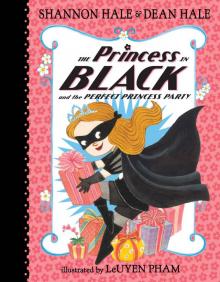 The Princess in Black and the Perfect Princess Party
The Princess in Black and the Perfect Princess Party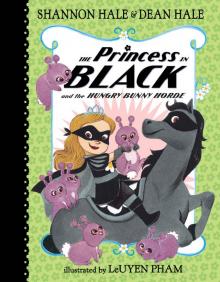 The Princess in Black and the Hungry Bunny Horde
The Princess in Black and the Hungry Bunny Horde The Unfairest of Them All
The Unfairest of Them All Forest Born
Forest Born 2 Fuzzy, 2 Furious
2 Fuzzy, 2 Furious The Actor and the Housewife
The Actor and the Housewife The Goose Girl
The Goose Girl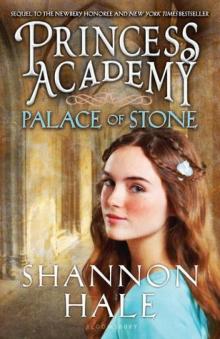 Palace of Stone
Palace of Stone Midnight in Austenland
Midnight in Austenland Enna Burning
Enna Burning Dangerous
Dangerous The Storybook of Legends
The Storybook of Legends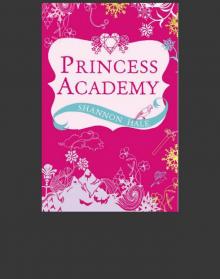 Princess Academy
Princess Academy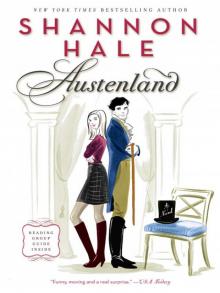 Austenland
Austenland The Forgotten Sisters
The Forgotten Sisters The Unbeatable Squirrel Girl: Squirrel Meets World
The Unbeatable Squirrel Girl: Squirrel Meets World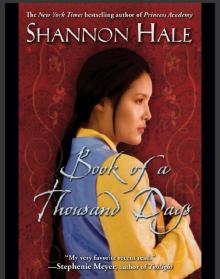 Book of a Thousand Days
Book of a Thousand Days Fire and Ice
Fire and Ice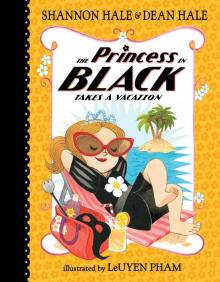 The Princess in Black Takes a Vacation
The Princess in Black Takes a Vacation River Secrets
River Secrets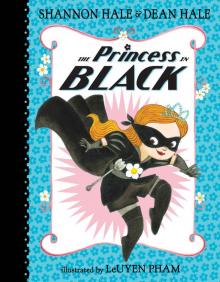 The Princess in Black
The Princess in Black Books of Bayern Series Bundle
Books of Bayern Series Bundle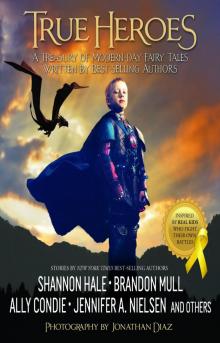 True Heroes
True Heroes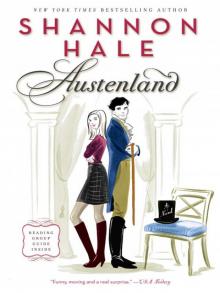 Austenland: A Novel
Austenland: A Novel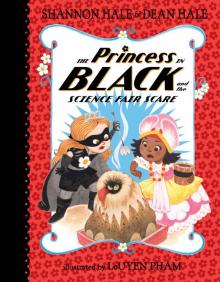 The Princess in Black and the Science Fair Scare
The Princess in Black and the Science Fair Scare![[Bayern 02] - Enna Burning Read online](http://i1.bookreadfree.com/i1/04/02/bayern_02_-_enna_burning_preview.jpg) [Bayern 02] - Enna Burning
[Bayern 02] - Enna Burning Ever After High
Ever After High Monster High/Ever After High--The Legend of Shadow High
Monster High/Ever After High--The Legend of Shadow High